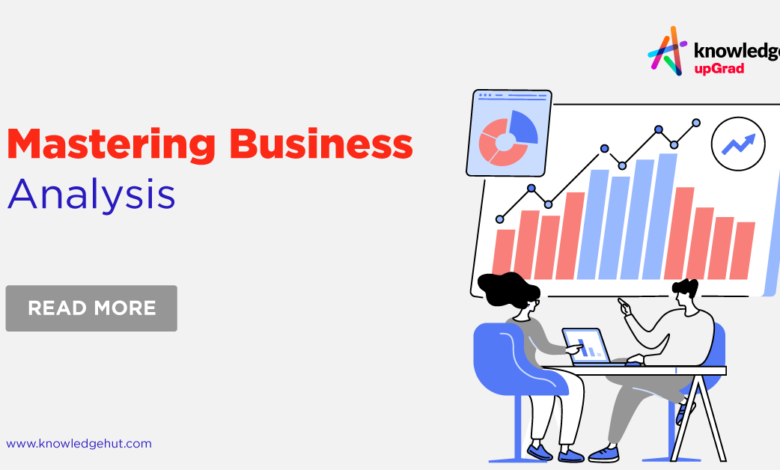Mastering Business Analytics: Your Gateway to Career Advancement

In today’s digitally-driven world, where data reigns supreme, mastering the art of business analytics has become more than just a skill—it’s a pathway to career advancement and success. As organizations increasingly rely on data to drive strategic decision-making and gain a competitive edge, professionals proficient in business analytics are in high demand across industries. Whether you’re looking to propel your current career forward or embark on a new journey, mastering business analytics opens doors to many opportunities. Join us as we explore how honing your skills in business analytics can serve as your gateway to unlocking new heights of career achievement and fulfillment.
Business analytics offers an exceptional career path with lucrative prospects in today’s data-driven economy. By delving into data analysis, statistical modeling, and predictive techniques, professionals can unlock insights crucial for organizational success. Pursuing a PG in business analytics further enhances one’s expertise, providing in-depth knowledge and practical skills highly sought after by employers. With a PG qualification, individuals can tackle complex business challenges, make data-driven decisions, and drive innovation. This specialized education increases employability and opens doors to high-paying roles in industries ranging from finance and healthcare to retail and technology. As businesses prioritize data-driven strategies, a PG in business analytics offers a surefire pathway to a remunerative and fulfilling career.
What is business analytics?
Business analytics involves systematically exploring data to extract actionable insights, aiding strategic decision-making within organizations. Businesses uncover patterns, trends, and correlations by utilizing statistical analysis, predictive modeling, and data mining techniques to optimize processes, understand customer behavior, and mitigate risks. Leveraging tools like data visualization, machine learning, and artificial intelligence, raw data is transformed into valuable intelligence, guiding stakeholders towards informed choices that drive growth, efficiency, and competitive advantage in today’s dynamic marketplace.
Career Opportunities in Business Analytics
Exploring career opportunities in business analytics reveals a landscape brimming with demand and diversity. Firstly, the high demand for business analytics professionals stems from the increasing reliance of organizations on data-driven insights to inform strategic decision-making. Every industry, from finance and healthcare to retail and technology, is leveraging business analytics to gain a competitive edge. Consequently, professionals skilled in data analysis, statistical modeling, and predictive techniques are highly sought after. Many potential job roles and career paths exist within these industries, ranging from data analysts and business intelligence analysts to data scientists and analytics managers. Each role offers unique opportunities for specialization and growth, allowing individuals to tailor their career paths to their interests and strengths. With the versatility of business analytics skills, professionals can carve out fulfilling and lucrative careers in various sectors, making it an exciting field for career exploration and advancement.
Benefits of Mastering Business Analytics
Improved Decision-Making: Business analytics provides insights derived from data analysis, enabling more informed and accurate decision-making. By examining historical data and identifying trends, patterns, and correlations, decision-makers can make data-driven choices that align with organizational objectives. This reduces reliance on intuition or guesswork, leading to more effective and impactful decisions across various business functions.
Increased Efficiency: Through the optimization of processes and workflows, business analytics helps organizations operate more efficiently. By analyzing data on operational performance, businesses can identify bottlenecks, streamline processes, and allocate resources more effectively. This results in improved productivity, reduced waste, and faster response times, ultimately driving overall efficiency and performance.
Enhanced Customer Experience: Business analytics allows organizations to gain insights into customer behavior, preferences, and satisfaction levels. By analyzing customer data, businesses can personalize marketing efforts, tailor product offerings, and improve customer service based on individual needs and preferences. This leads to enhanced customer experiences, increased loyalty, and higher customer retention rates.
Improved Strategic Planning: Business analytics enables organizations to develop more informed and effective strategic plans. By analyzing market trends, competitor activities, and internal performance metrics, businesses can identify opportunities and threats, assess risks, and develop strategies to capitalize on strengths and mitigate weaknesses. This ensures that strategic initiatives are aligned with organizational goals and have a higher likelihood of success.
Cost Savings: Business analytics helps organizations identify cost savings and efficiency improvements opportunities. By analyzing financial data and operational metrics, businesses can identify areas of unnecessary spending, optimize resource allocation, and implement cost-saving measures. This leads to reduced expenses, improved profitability, and a more sustainable bottom line in the long term. Overall, business analytics provides various benefits that contribute to organizational success and competitiveness in today’s dynamic business environment.
Pursuing a Postgraduate Degree in Business Analytics
Pursuing a postgraduate degree in business analytics offers a comprehensive pathway to acquiring advanced skills and knowledge essential for success in today’s data-driven world. Postgraduate programs in business analytics typically provide in-depth training in data analysis, statistical modeling, machine learning, and data visualization techniques. Students also gain proficiency in programming languages like Python and R, as well as database management systems such as SQL. This multifaceted curriculum equips graduates with the expertise needed to analyze complex data sets and derive actionable insights to inform strategic decision-making. Moreover, a postgraduate degree in business analytics enhances career opportunities by demonstrating specialized knowledge and skills highly sought after by employers. Graduates are well-positioned for roles such as data scientist, business analyst, analytics manager, and consultant across various industries. Additionally, the practical experience gained through projects and internships during the program further strengthens their competitiveness in the job market, paving the way for rewarding and impactful careers in business analytics.
Conclusion
Mastering business analytics is undeniably a gateway to career advancement in today’s rapidly evolving business landscape. The skills and knowledge acquired through mastering business analytics empower individuals to make informed decisions, drive efficiency, and enhance strategic planning within organizations. Pursuing a PG in business analytics further amplifies these benefits by providing a deep understanding of advanced analytics techniques and practical experience. This specialized education equips individuals with the expertise needed to navigate the complexities of the data-driven economy, ensuring their competitiveness in the job market and opening doors to lucrative career opportunities. In a world where data is the currency of success, mastering business analytics not only propels career growth but also enables individuals to make a significant impact in their organizations and industries.



